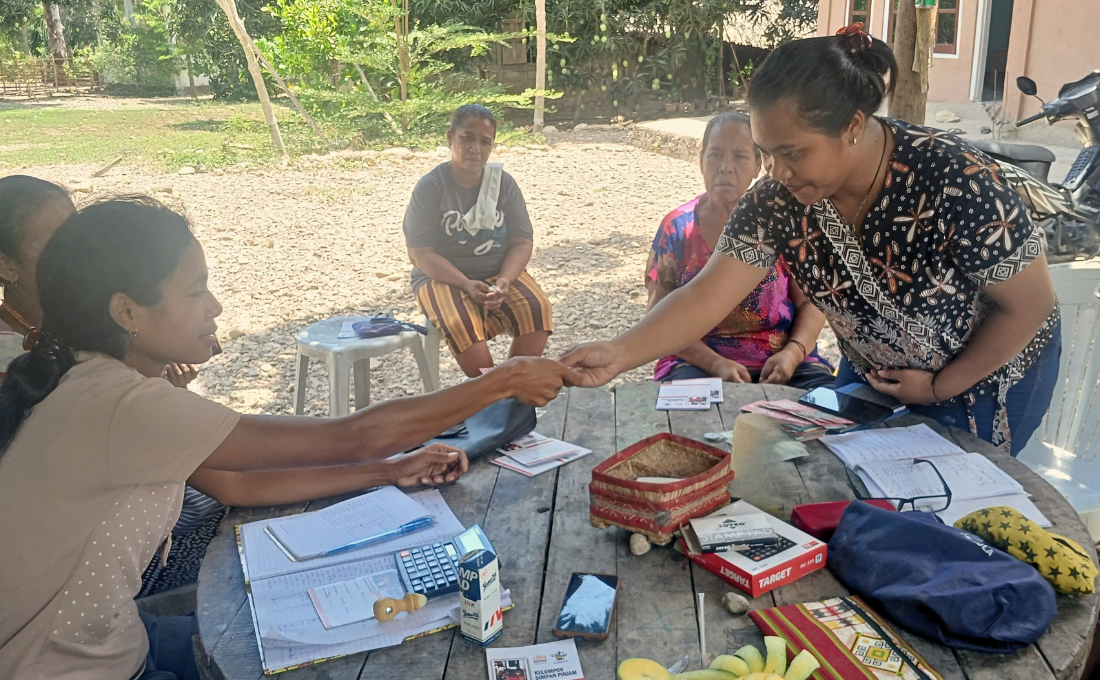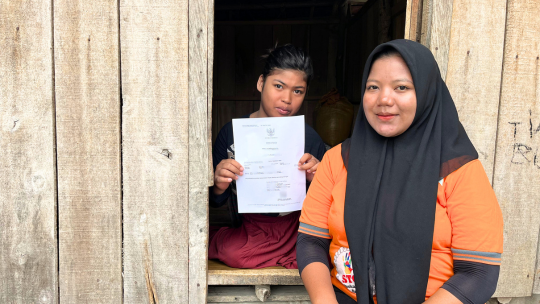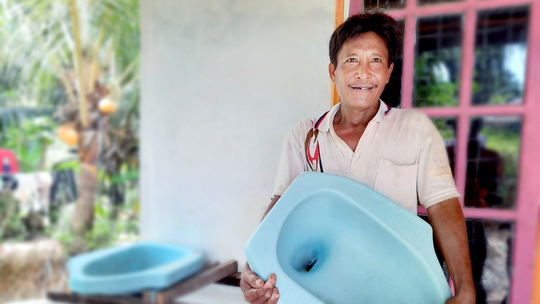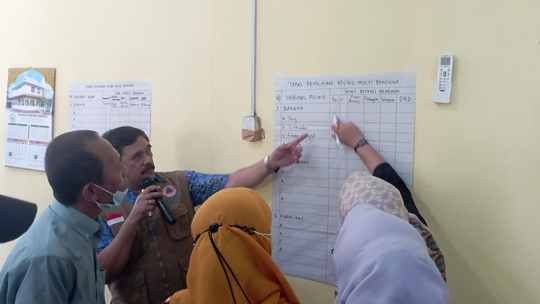Financial Health Check Ups for Rural Families

Mama Putry, aged 34, is a stay-at-home mother living in a village in Kupang Regency, East Nusa Tenggara. Before becoming a staff member at the local government office, her husband worked as a farmer or did odd jobs, leading to an unstable income. They usually sold their farm produce, such as corn, bananas, and sweet potatoes, at the market or took on casual labour. All this work was to earn money to cover the family's needs, like their children's school fees.
However, their earnings were meagre. In the village, not many people needed their harvests unless they took them to the city. This also caused the family to struggle financially to meet their daily household needs. To solve their financial problems, Mama Putry borrowed money from a savings and loan cooperative with daily interest. Their economic life, reliant on daily cooperative loans, continued for many years, despite the high interest rates.
In 2023, Mama Putry attended training on Household Economic Management (PERT) and the Savings for Transformations (S4T), facilitated by GMIT and Wahana Visi Indonesia. During the training, Mama Putry became interested in S4T. "I've been thinking, this kind of association is better than the cooperative. We set the interest ourselves, it's not the same as the cooperative," she said.
Mama Putry then joined an S4T group called Bes Oni. According to Mama Putry, this group greatly helped her family, especially in meeting her children's needs. At the cooperative, the available loan amounts were usually larger than needed, making repayment very burdensome. In contrast, S4T allows members to borrow according to their needs. "If my child needs three hundred thousand rupiah, I don't have to borrow three million from the cooperative. The three hundred thousand is used, but my husband and I would be stressed about repaying the rest," she explained.
Mama Putry also acknowledged that S4T has a positive added value: members not only join to meet their own needs but also to help each other. "In this group, I save not just for myself, but I also help other mothers in the same situation as me," said the mother of three daughters.
Mama Putry felt the impact of S4T's presence, which not only helped her meet her children's needs but also taught her to save consistently. After one year in the group, Mama Putry is now better able to manage her family's finances. This means she is more careful with money because she also has to save. Now, Mama Putry continues with the S4T group and has even been entrusted with the role of secretary in the Bes Oni S4T group.
"This group, after a year of being involved, if I can say so, S4T is from us and for us. Especially since the children start school in January, I've already been able to borrow to buy books, pencils, and pens for my children," she concluded.
Author: Maria Fridolin Nesi (Field Facilitator for GMIT, Kupang Area Programme implementing partner)
Editor: Mariana Kurniawati (Communication Executive)



